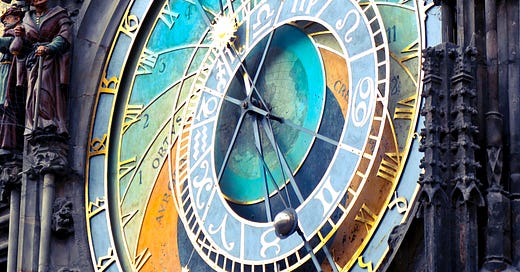Astrology is a favorite punchline in social commentary from famous scientists to late-night TV hosts. But, unfortunately, people who follow or believe in this tradition are reduced to foolish airheads falling prey to con artists with gullibility. I argue that astrology is a protoscience, not a pseudoscience, and at its best, it can inspire the sciences. But before I break down why astrology is not the pseudoscience that scientists like to characterize it as, there is one chief reason why condemning it is harmful. Astrology naysayers primarily tend to be white, male, and educated—people enjoying the best social privileges our world has to offer. Meanwhile, astrology is having a huge, tangible moment in uplifting queer, Black, and POC folks and their communities. That alone earns Astrology deep respect. Anything that empowers marginalized identities in a world of relentless colonization and imperialism does not need scientific verification to be authentic or valid. So I challenge you to consider that your privilege might be blinding you to some magic that exists in the Universe.
To be clear, I am a professional astrologer who also happens to be an Astronomy student at the University of Michigan. I have a deep appreciation for science and academics, and it compels me to defend my passion for astrology because it gets conflated with ignorance and malpractice. I argue that you do not need to suspend your beliefs in logic or reason to value this tradition and that it does not exist in opposition to science but as a friend to it. Science, by its nature, must be systematic and rigid—but belief systems can entertain wild claims. Astrology uses legitimate geometry with obviously ancient science, mapping the sky geocentrically. Yet, no astrologer tells anyone that the sun revolves around the earth. Furthermore, it does not use math or science to validate the belief; the tradition asks you to use your life experiences to justify whether or not you believe it.
And yes, we astrologers know that axis precession has created a 13th sign on the zodiac elliptical; some systems of astrology incorporate Ophiuchus. Western astrology, however, uses the tropical system—aligning the sign’s boundaries with changing seasons rather than literal position in the sky. It’s as if we are projecting a map of the ancient Greek sky onto the earth, which is pretty cool in my book.
It is also not a scam; all of the information is in the public domain in some form. I was able to teach myself over years of scouring free sources and studying the charts of myself and my friends. There is a labor and a skill involved in understanding astrology, creating birth charts, and interpreting them for others. Astrologers are not employing the harmful tactics of psychics, doing cold readings, or preying on people who are missing their loved ones—they are interpreting unique calculations using a precise traditional system; even with software, this takes time. And we are responding to a demand in people wanting to utilize a downright fun system of self-reflection and empowerment rather than targeting vulnerabilities. People can freely fact-check the work of astrologers with some simple searches—people know what they are paying for.
One problem aspect of astrology is the horoscope. Horoscopes are for fun and entertainment, and they are popular because most of us know our sun sign, and it can be a delight to entertain predictions. They are an example of Pop Astrology, and by nature, it is cheap, easy, impersonal, and generalized to suit as many people as possible in one paragraph. It does not resemble real Astrology because the actual custom takes considerable study, time, effort, and practice for any individual chart—and all natal charts represent just one of a mathematically improbable number of possible placements. Birth charts map a beautiful and personal geometry of the sky. Horoscopes have long been the only viable marketing tool available to Astrologers because they can work at catching people’s attention and garnering a following. They accurately characterize astrology about as much as Entourage showcases all of HBO. Horoscopes are the perfect scapegoat for representing astrology and are what makes it so easy for skeptics and the science community to dismiss and demean it and its followers.
Astrology makes several large claims, such as that the planets mark the place in time having the most influence on your entire life. And I can see how the precious second when your tiny newborn body is fully embraced by light for the first time—the moment of your birth—is so monumental. I see truth in there because the moment you are born, you are given an identity. With it, parents and all subsequent consequences of where your individuality intersects in the world, which family you belong to and where your neighborhood is. Planetary positions from the perspective of you at the center of the cosmos are a beautiful and elegant representation of your introduction to life.
As for lending science inspiration, the tradition makes for a beautiful muse if one approaches it with an open mind. After all, astrology first suggested that seasons affect our life outcomes; now, science is at the point of studying the patterns and consequences of our birth months. It boldly claimed that faraway objects could interact with life on earth, and quantum entanglement has us entertaining connections between cosmic distances. The fundamental message of ancient astrology is that we are intimately connected with the cosmos, and thanks to modern astronomy, we know that we are made of stardust.
Interested in having your own custom birth chart interpretation? Email me at hedralholly@gmail.com with your birth date, birth time, and birth location.
Get a unique report, up to 30 pages long, for only $42!
Interested in learning more about Astrology? Stay tuned for my upcoming class launching in January on teach:able: Astrology 101



